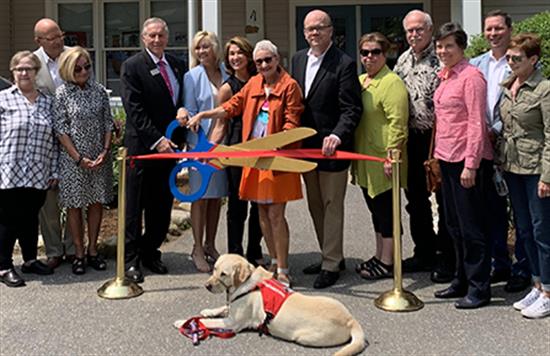WASHINGTON, D.C. – Today, The House of Representatives passed, as part of the FY2021 National Defense Authorization Act, legislation introduced and championed by Rules Committee Chairman Jim McGovern (D-MA) to permanently authorize the Wounded Warrior Service Dog Program within the United States Department of Defense Health Programs.
Since 2014, the program has been piloted through funding that McGovern has secured – and expanded –through the appropriations process. The new language, passed today, ensures stability for the program which has provided aid for organizations that support thousands of veterans with physical disabilities and post-traumatic stress.
“The Wounded Warrior Service Dog Program has been a proven success – providing aid to organizations which train thousands of dogs that care for and treat veterans with physical disabilities and post-traumatic stress,” said Congressman McGovern. “Yet many of the nonprofits that train these dogs are underfunded, and too many veterans who need service dogs can’t get them due to financial constraints. I’ve talked with countless veterans who tell me that a service dog has literally saved their life. I’m so glad that Congress passed this important legislation to help make sure that any veteran who needs a service dog can get one.”
McGovern created the pilot program after a 2013 visit to the nonprofit National Education for Assistance Dog Services (NEADS) campus in Princeton, Massachusetts, where he learned firsthand how service dogs are helping to treat veterans with physical disabilities as well as individuals who suffer from post-traumatic stress. NEADS has trained over 200 service dogs and paired them with veterans in need.
Permanent authorization of the program will also allow nonprofit awardees like NEADS to know that the grants program will continue over the long term, better plan their budgets and increase their capacity to serve even more veterans. In 2018, 31 nonprofits across 22 states received funding through the competitive grant process.
McGovern had previously introduced a standalone bill last year alongside Indiana Republican Jackie Walorski to authorize the program for five years, but now aims to permanently authorize the program through an amendment to the FY2021 National Defense Authorization Act, must-pass legislation which now heads to the Senate for further debate.
###
